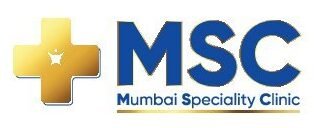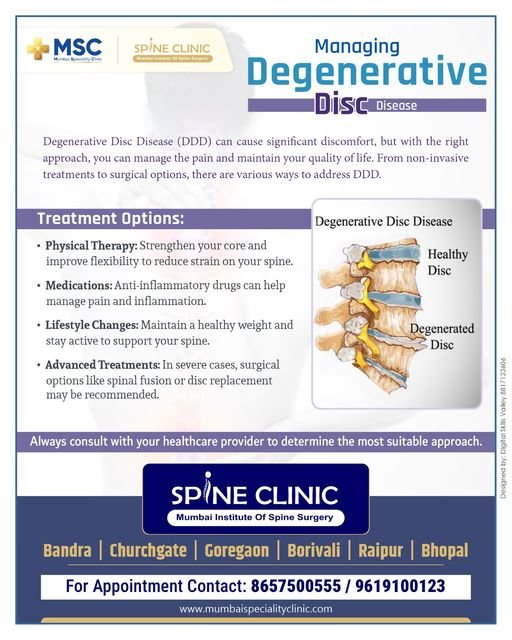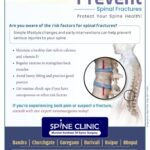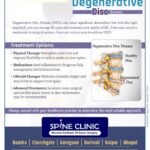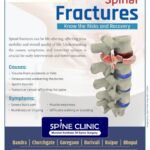Degenerative Disc Disease (DDD) is a condition that can lead to significant discomfort and a decrease in your overall quality of life. While the term “disease” might sound alarming, DDD is not actually a disease but rather a condition caused by the wear and tear of the spinal discs. As we age, these discs naturally begin to degenerate, which can lead to pain, stiffness, and other symptoms. The good news is that with the right approach, you can manage the symptoms and maintain an active, fulfilling life.
What Is Degenerative Disc Disease?
Degenerative Disc Disease refers to the gradual deterioration of the intervertebral discs, which are the soft, cushion-like structures located between the bones of the spine (vertebrae). These discs act as shock absorbers, allowing for flexibility and movement of the spine. Over time, due to factors like aging, injury, or repetitive strain, these discs can lose their moisture and elasticity, leading to a decrease in their ability to cushion the vertebrae. This can result in pain and discomfort, particularly in the neck and lower back.
While everyone’s discs undergo some level of degeneration as they age, not everyone will experience symptoms of DDD. For those who do, the symptoms can range from mild to severe, and they can have a significant impact on daily activities.
Common Symptoms of Degenerative Disc Disease
The symptoms of DDD can vary depending on the location and severity of the disc degeneration. Common symptoms include:
- Chronic Pain: Persistent pain in the lower back or neck is a common symptom. The pain may worsen with activities that involve bending, lifting, or twisting.
- Pain that Radiates: In some cases, the pain may radiate to other areas, such as the buttocks, thighs, or arms. This occurs when the degenerated disc affects nearby nerves.
- Numbness or Tingling: If the disc degeneration leads to nerve compression, you may experience numbness, tingling, or a pins-and-needles sensation in the extremities.
- Muscle Weakness: Nerve compression can also lead to muscle weakness in the affected areas, making it difficult to perform everyday tasks.
- Stiffness: The loss of flexibility in the spine due to disc degeneration can lead to stiffness, particularly in the morning or after periods of inactivity.
Causes of Degenerative Disc Disease
While aging is the most common cause of DDD, several factors can contribute to the onset and progression of the condition:
- Aging: As we age, the discs in our spine naturally lose water content, which reduces their ability to absorb shock. This makes them more prone to injury and degeneration.
- Injury: An injury to the spine, such as a fall or a car accident, can accelerate the degeneration of the discs. Even minor injuries that don’t cause immediate pain can contribute to the wear and tear over time.
- Genetics: Some people are genetically predisposed to develop DDD. If you have a family history of spine-related issues, you may be at a higher risk.
- Repetitive Strain: Occupations or activities that involve repetitive bending, lifting, or twisting can put extra strain on the discs, leading to accelerated degeneration.
- Obesity: Excess weight puts additional stress on the spine, increasing the risk of disc degeneration.
Diagnosing Degenerative Disc Disease
If you are experiencing symptoms of DDD, it’s important to seek medical attention for an accurate diagnosis. At the Mumbai Speciality Clinic, part of the Mumbai Institute of Spine Surgery, we use a combination of physical examinations, patient history, and advanced imaging techniques to diagnose DDD. Imaging tests such as X-rays, MRIs, or CT scans can provide detailed information about the condition of your spinal discs and help in determining the most appropriate treatment plan.
Treatment Options for Degenerative Disc Disease
The goal of treatment for DDD is to manage pain, improve function, and enhance the quality of life. Treatment options can range from conservative, non-surgical approaches to more advanced surgical interventions, depending on the severity of the condition.
- Physical Therapy Physical therapy is often the first line of treatment for DDD. A physical therapist can design a personalized exercise program to strengthen the muscles that support the spine, improve flexibility, and reduce strain on the spinal discs. Regular physical therapy can help alleviate pain, improve posture, and increase mobility.
- Medications Medications can play a crucial role in managing the pain and inflammation associated with DDD. Over-the-counter pain relievers such as acetaminophen or nonsteroidal anti-inflammatory drugs (NSAIDs) like ibuprofen are commonly used. In some cases, prescription medications may be necessary, particularly if the pain is severe or persistent.
- Lifestyle Changes Lifestyle modifications can have a significant impact on managing the symptoms of DDD. Maintaining a healthy weight reduces the stress on the spine, and staying active with low-impact exercises like walking, swimming, or cycling can help keep the spine flexible and strong. Avoiding activities that exacerbate symptoms, such as heavy lifting or prolonged sitting, is also important.
- Advanced Treatments For those with severe symptoms that do not respond to conservative treatments, advanced options may be necessary. These can include:
- Spinal Injections: Corticosteroid injections can help reduce inflammation and provide pain relief by delivering medication directly to the affected area.
- Spinal Fusion Surgery: In cases where the disc degeneration causes significant instability in the spine, spinal fusion surgery may be recommended. This procedure involves permanently joining two or more vertebrae to stabilize the spine.
- Disc Replacement Surgery: In some cases, an artificial disc may be used to replace the degenerated disc, allowing for continued movement in the spine.
Living with Degenerative Disc Disease
Living with DDD can be challenging, but many people find that with the right treatment and lifestyle adjustments, they can lead full, active lives. It’s important to work closely with your healthcare provider to develop a comprehensive treatment plan that addresses your specific needs and goals.
Regular follow-up appointments are essential to monitor the progression of the disease and adjust treatment as necessary. In addition to medical treatment, staying informed about your condition and making proactive decisions about your health can empower you to manage DDD effectively.
Conclusion
Degenerative Disc Disease is a common condition that affects many people, particularly as they age. While it can cause significant discomfort, it is possible to manage the symptoms and maintain a high quality of life with the right approach. At Mumbai Speciality Clinic, we are dedicated to providing comprehensive care for patients with DDD, offering a range of treatment options tailored to meet individual needs.
If you or someone you know is experiencing symptoms of Degenerative Disc Disease, don’t wait. Contact us today to schedule a consultation with our team of specialists. We are here to help you find relief and get back to enjoying your life.










